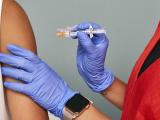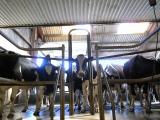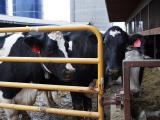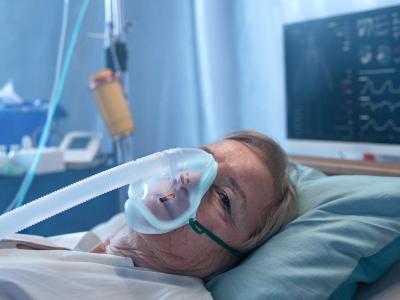Mar 8, 2012
Senate unanimously reauthorizes 2006 preparedness act
The US Senate yesterday approved reauthorization of the Pandemic and All-Hazards Preparedness Act of 2006 (PAHPA) by unanimous consent, setting the stage for resolving differences between the Senate bill and a House version that was passed in December. Sen. Richard Burr, R-N.C., lead sponsor of the bill, said in a press release that the nation's ability to respond to public health emergencies has improved since 2006, but the 2009 flu pandemic showed that more work is needed. "I am pleased that this bill will strengthen our existing medical and public health preparedness and response programs based on the lessons we have learned in recent years, including ensuring that the FDA [Food and Drug Administration] has the tools it needs to advance the medical countermeasures necessary to respond to modern day threats," he said. According to bill summaries from Burr's office and a Senate committee, the bill reauthorizes federal programs that support state, local, and hospital emergency preparedness; authorizes $2.8 billion for Project BioShield for further development of medical countermeasures from 2014-18; increases the Biomedical Advanced Research and Development Authority's focus on developing innovative biodefense tools; charges the FDA with developing regulatory science tools to advance the review and approval of medical countermeasures; and makes targeted enhancements to the National Disaster Medical System, the Medical Reserve Corps, the Emergency System for Advance Registration of Volunteer Health Professionals, and the Strategic National Stockpile of drugs and medical supplies. The bill also includes provisions requiring consideration of the needs of at-risk individuals in emergency preparedness.
Mar 8 Burr press release
Bill summary from Burr's office
Vietnam reports fourth H5N1 case of 2012
Vietnam's latest H5N1 avian flu patient, a 32-year-old man from Dak Lak province, is being treated at the Hospital for Tropical Diseases in Ho Chi Minh City, Than Nien News reported yesterday. His case is the country's fourth this year, after a 20-month hiatus of H5N1 cases. The man fell ill with a cough and high fever more than 10 days ago, after slaughtering and eating a sick chicken from his backyard flock. The flock was wiped out by the disease, but the story did not specify how many poultry died. He was hospitalized locally 3 days after reporting symptoms, and then was transferred to the Hospital for Tropical Diseases Mar 5, where deputy director Le Manh Hung said that tests confirmed H5N1 flu. Two of the previous three cases this year were fatal. If the World Health Organization (WHO) confirms the case, it will bring Vietnam's total since 2003 to 123, the third-most in the world. Sixty-one of the cases have been fatal.
Mar 7 Than Nien News story
Mar 6 WHO global case count
Study shows broad US support for donating H1N1 vaccine to poor nations
Although Democrats and Republicans, liberals and conservatives could generally agree about timely donations of 10% of the US vaccine supply to poorer nations during the 2009 H1N1 pandemic, people of different political backgrounds, ideologies, and demographic characteristics disagreed on the amount to donate, according to a study in PLoS One. US researchers surveyed 2,079 US adults from Jan 22 to Feb 1, 2010, after the pandemic's peak and when vaccine was in plentiful supply. They found that 57.6% of Republicans and 54.1% of Democrats supported giving 10% and that percentages for conservatives, moderates, and liberals were 59.5%, 54.5%, and 52.4%, respectively. They found similar general agreement when comparing income level (57.0%, 55.5%, 52.7%, and 57.0% for lowest to highest groups) and priority-group status for receiving the vaccine (54.0% for those in a priority group vs 57.5% for those not). In general, though, the team found that income, priority status, nativity (whether US-born or not), party affiliation, and political ideology were significantly related to views on whether the amount donated should be higher or lower than 10%. For example, 26.8% of Democrats and 14.3% of Republicans thought the country should donate more than 10%, while 11.4% of Democrats and 22.0% of Republicans thought the country should not donate any vaccine. The authors conclude, "Given our evidence for bipartisan support for timely donations, it may be necessary to design multiple arguments, from utilitarian to moral, to strengthen public and policy makers' support for donations."
Mar 6 PLoS One study



















